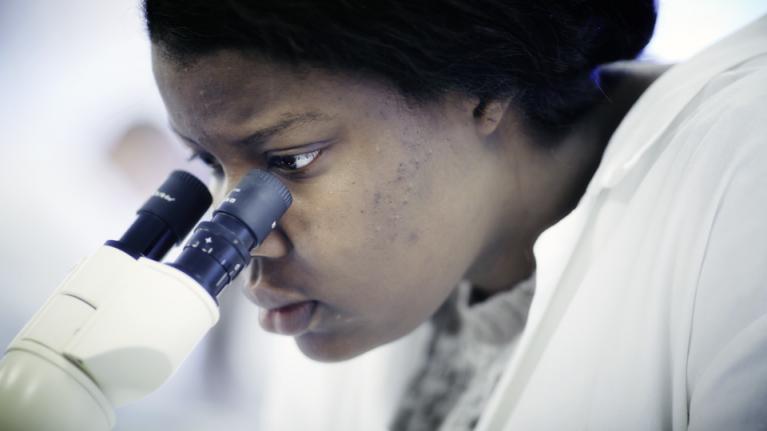
UWL School of Biomedical Sciences supports MRC’s Black in Biomedical Research Project
Intro
A consortium of academics, students, and industry representatives including Dr Bernadine Idowu, Associate Professor of Biomedical Science at the University of West London’s School of Biomedical Sciences, have been involved in efforts to ensure that £3.7 million will be committed by the Medical Research Council (MRC) over the next three years to fund initiatives to address the underrepresentation of people from Black heritage backgrounds in biomedical research.
Main body
The funding came about after the MRC brought together Black biomedical researchers in a working group to discuss the issue and how to tackle it going forward. Those on the Advisory Board who will provide expertise to help manage the funds include Dr Idowu herself, alongside Black biomedical scientists from across the UK.
Bernadine said:
Being involved in this initiative is a major achievement for a modern university like UWL. We the Advisory Board will help decide how the funds are allocated and there will be a project manager in place to support our activities.”
One of the first events to be supported is Dr Idowu’s Changing the Story for Black Biomedical Scientists Conference, taking place on 26 April 2023, alongside the Academy of Medical Sciences and Wellcome. The Conference aims to reach out to Black students at both secondary school and university level and inspire them to pursue academic careers in Biomedical Science.
Bernadine continues:
The aim is to have up to 90 young people attending for presentations and roundtable sessions. I wish to gather everyone together, no matter where they are studying, so that we can build a strong network.”
In recognition of how important it is that Black biomedical students gain practical experience, the MRC funds will also be used to develop paid summer internships alongside researchers in the lab. The first pilot will be hosted at UWL starting from July 2023 and further information about how to apply will be communicated soon.
Dr Idowu adds:
I remember how important my own internship as a student was in opening doors for me. This kind of experience is massive in terms of working in industry, moving on to do a Master’s or PhD.”
A further activity will include funding dedicated fellowships that support Black early career postdoctoral biomedical scientists or researchers who want to make the transition to becoming an academic or a principal investigator. The details will be firmed up with help from the Advisory Group, but the vision is for these positions to be available for research projects proposed by applicants anywhere in the UK over the next three years. The MRC is also supporting the Sanger Excellence Fellowship scheme, one of the first of its kind in the UK which is aimed at people from Black heritage backgrounds.
Bernadine concludes:
For me it is about having the ability to make young people see themselves in areas they thought they could never enter and giving them the opportunity to see their dreams come true. It is also about positive action to increase the numbers of Black biomedical researchers and academics.
I am proud to be a trail blazer for Black biomedical scientists and it was UWL that empowered me to have a voice.”
Professor Anthony Woodman, UWL Provost and Senior Deputy Vice-Chancellor said:
UWL is delighted to be part of an initiative that will open doors and inspire career success for Black students hoping to become biomedical scientists and researchers. We are proud of Dr Idowu's determination and tenacity in making positive strides to address the underrepresentation of people from Black heritage backgrounds both in biomedical science and in academic roles.”
Related news
-
UWL looks to a new generation of biomedical experts
Ensuring the next generation of game-changing scientists are fully equipped for a leading future in health and medicines, the University of West London (UWL) is offering a whole new area of teaching.
-
Dr Bernadine Idowu, Associate Professor in Biomedical Science, explains why she loves UWL.
Hear from Dr Bernadine Idowu, Associate Professor in Biomedical Science, about what she loves most about UWL
-
UWL SBS PhD students have paper published in a high impact Bioengineering journal
Students from UWL's School of Biomedical Science have had a paper – ‘Bioengineering of Antibody Fragments: Challenges and Opportunities’ published in open access academic Bioengineering journal.



